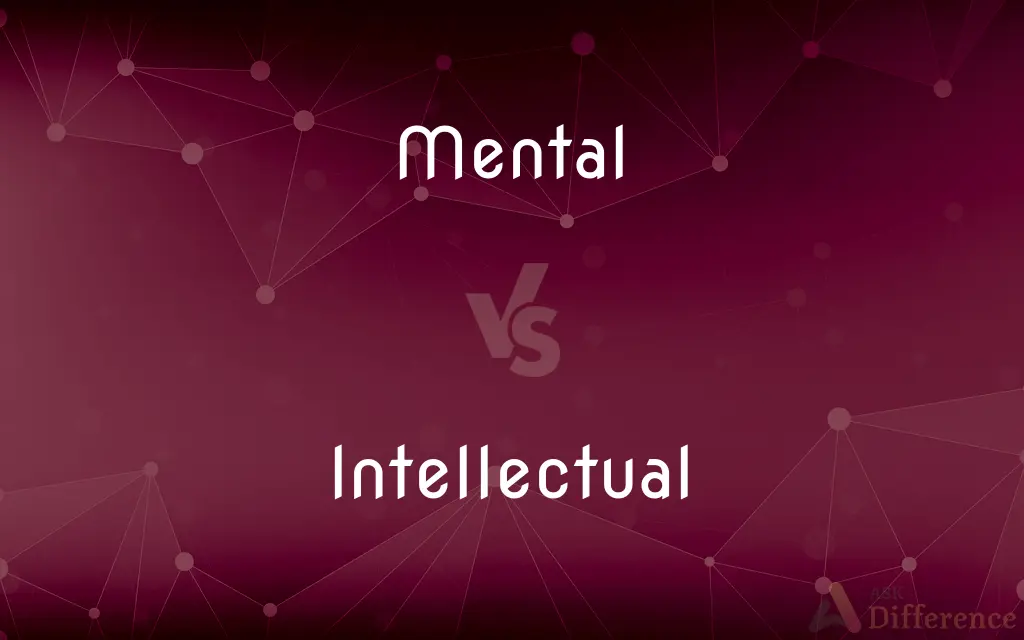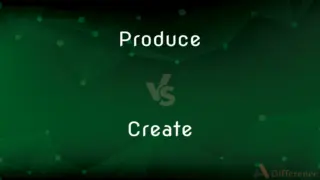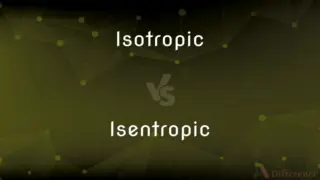Mental vs. Intellectual — What's the Difference?
By Fiza Rafique & Maham Liaqat — Updated on February 26, 2024
Mental relates to the mind's overall function, including emotions and psychological states, while intellectual specifically refers to cognitive activities associated with thinking, understanding, and reasoning.

Difference Between Mental and Intellectual
Table of Contents
ADVERTISEMENT
Key Differences
Mental encompasses a broad range of functions and processes within the mind, including emotional, psychological, and cognitive aspects. It relates to anything affecting the mind, whether it's feelings, thoughts, or mental health conditions. Intellectual, however, is narrowly focused on the realm of intellect and cognitive processes. It involves reasoning, learning, understanding, and the capacity for abstract thought, often associated with academic and theoretical pursuits.
Mental abilities include the capacity to experience emotions, manage thoughts, and navigate social relationships, intellectual abilities are more about the power to analyze, conceptualize, and apply logic. Intellectual activities are often measured through IQ tests and educational achievements, whereas mental states and health are assessed through psychological evaluations and personal well-being.
The development of mental and intellectual capacities can intersect, as intellectual pursuits can influence mental states, and a healthy mental state can enhance intellectual capabilities. Activities like reading, problem-solving, and engaging in complex discussions can stimulate both intellectual growth and mental well-being.
Mental health focuses on maintaining a balanced emotional and psychological state, dealing with stress, and managing mental disorders. Intellectual health, while not a commonly used term, could be seen as fostering intellectual growth, curiosity, and lifelong learning to keep the mind sharp and engaged.
The importance of balancing mental and intellectual aspects of life cannot be overstated. While intellectual achievements contribute to knowledge and skill acquisition, mental health is crucial for overall happiness, resilience, and the ability to cope with life's challenges. Both aspects are vital for a fulfilling, productive life.
ADVERTISEMENT
Comparison Chart
Definition
Pertaining to the mind, including emotional and psychological states
Relating to the intellect or cognitive processes
Focus
Emotions, thoughts, mental health
Reasoning, learning, understanding, abstract thinking
Measurement
Psychological evaluations, personal well-being
IQ tests, academic achievements
Development
Influenced by emotional and psychological health
Stimulated by learning, reasoning, and critical thinking
Health Aspect
Mental health: managing stress, emotional well-being
Intellectual growth: fostering curiosity, lifelong learning
Importance
Essential for emotional balance, resilience
Crucial for knowledge acquisition, cognitive development
Compare with Definitions
Mental
Involves Thinking and Feeling.
Mental health is as important as physical health.
Intellectual
Involves Reasoning and Understanding.
His intellectual interests lie in quantum physics.
Mental
Affects Behavior.
A positive mental attitude can lead to successful outcomes.
Intellectual
Enhanced by Education.
Higher education can lead to greater intellectual development.
Mental
Emotional and Psychological States.
Her mental state improved significantly after therapy.
Intellectual
Measured by IQ Tests.
Intellectual capabilities are often assessed through standardized testing.
Mental
Measured Through Well-being.
Daily activities can have a big impact on one's mental health.
Intellectual
Focus on Learning and Knowledge.
Lifelong intellectual growth keeps the mind sharp.
Mental
Related to the Mind.
Mental exercises like meditation can improve emotional well-being.
Intellectual
Cognitive Activities.
Intellectual pursuits, such as chess, enhance cognitive abilities.
Mental
Relating to the mind
Mental faculties
Mental phenomena
Intellectual
An intellectual is a person who engages in critical thinking, research, and reflection to advance discussions of academic subjects. This often involves publishing work for consumption by the general public that adds depth to issues that affect society.
Mental
Relating to disorders of the mind
A mental hospital
Intellectual
Relating to the intellect
Children need intellectual stimulation
Mental
Of or pertaining to the mind; intellectual; as, mental faculties; mental operations, conditions, or exercise.
What a mental powerThis eye shoots forth!
Intellectual
A person possessing a highly developed intellect
A prominent political thinker and intellectual
Mental
Involving the mind or an intellectual process;
Mental images of happy times
Mental calculations
In a terrible mental state
Mental suffering
Free from mental defects
Intellectual
Of or relating to the intellect.
Mental
Of or relating to the mind;
Mental powers
Mental development
Mental hygiene
Intellectual
Rational rather than emotional
An intellectual decision.
Mental
Affected by a disorder of the mind;
A mental patient
Mental illness
Intellectual
Pertaining to, or performed by, the intellect; mental or cognitive.
Intellectual powers, activities, etc.
Intellectual
A learned person or one of high intelligence;
Intellectual
Involving intelligence rather than emotions or instinct;
A cerebral approach to the problem
Cerebral drama
Common Curiosities
What are examples of intellectual activities?
Reading, problem-solving, and engaging in academic research.
What is the main difference between mental and intellectual?
Mental relates to overall mind function including emotions, whereas intellectual focuses on cognitive processes like reasoning.
Can intellectual activities benefit mental health?
Yes, engaging in intellectual activities can stimulate the mind and positively impact mental health.
How do mental and intellectual aspects interact?
They are interdependent, with each influencing and supporting the growth and health of the other.
Can a healthy mental state affect intellectual performance?
A healthy mental state can significantly enhance focus, understanding, and learning capabilities.
What is the significance of mental health in daily life?
It affects how we think, feel, and behave, influencing overall quality of life and relationships.
How are mental abilities assessed?
Through psychological evaluations and assessments of well-being and emotional health.
Is it important to balance mental and intellectual aspects?
Balancing both is vital for a well-rounded, fulfilling life, impacting overall happiness and cognitive growth.
How can one improve their intellectual abilities?
Through continuous learning, curiosity, and challenging cognitive tasks.
What role does education play in intellectual development?
Education is crucial, providing the foundation for critical thinking, knowledge acquisition, and cognitive skills.
Are mental disorders related to intellectual capabilities?
While they are distinct, mental disorders can impact cognitive functions, but intellectual capabilities can be strong regardless.
How do cultural factors influence mental and intellectual development?
Cultural values, education systems, and societal norms can shape both mental perspectives and intellectual pursuits.
What strategies promote intellectual health?
Engaging in diverse learning experiences, critical thinking exercises, and open-minded exploration of new ideas.
What is the impact of technology on mental and intellectual aspects?
Technology offers tools for learning and mental health support but also poses challenges like distraction and information overload.
Can intellectual pursuits change with age?
Yes, interests may evolve, but lifelong learning can continue to enrich intellectual vitality.
Share Your Discovery

Previous Comparison
Produce vs. Create
Next Comparison
Isotropic vs. IsentropicAuthor Spotlight
Written by
Fiza RafiqueFiza Rafique is a skilled content writer at AskDifference.com, where she meticulously refines and enhances written pieces. Drawing from her vast editorial expertise, Fiza ensures clarity, accuracy, and precision in every article. Passionate about language, she continually seeks to elevate the quality of content for readers worldwide.
Co-written by
Maham Liaqat













































